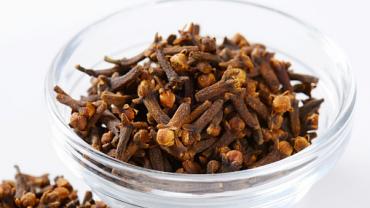
Everyone loves to find a hidden treasure. It may be the valuable antique at a local garage sale the brand new item at the thrift store or the bargain found online. Whatever the nature of this treasure the excitement of the discovery is only reserved for those who know the value. Many others will thoughtlessly pass it by unaware of its worth or potential.
The clove is an example of such. Ugly and unassuming it often gets passed over and shoved to the back of the spice cupboard only to be retrieved when fixing the holiday pumpkin pie. However to the expert herbalist or the knowledgeable professional this spice is a hidden treasure among botanicals with worth that exceeds many in its class.
The clove (Syzygium aromaticum) bud reigns over other botanicals as a supreme antioxidant and with ability to support the body against various organisms; however it also holds positions in the cosmetic and pharmaceutical industry agriculture and food preservation. The superior nature of clove bud is born from its impressive quantity and quality of health-promoting compounds known as polyphenols and flavonoids. Eugenol is the main actor among these constituents with other beneficial acids following close behind.
Clove’s strength as an antioxidant stems from its ability to fight damaging free radicals via several methods. Free radicals are missing hydrogen atoms and clove can donate the missing atoms to neutralize the free radical. Many metals can be present in the body but become dangerous after losing small charges known as electrons. The active component of clove bud resupply electrons to metals making them safer. In addition the body may produce destructive oxygen species as a means of killing harmful organisms and removing unhealthy compounds; however these oxygen species can also become damaging to the body when they accumulate. Clove bud is able to help the body maintain a healthy amount of oxygen species. Collectively the number of free radicals dangerous metals and oxygen species produce a state of oxidative stress in the body. This state can compromise the health of various organs and does not contribute to optimal wellness; however the components of clove bud are effective antioxidants which help to reduce oxidative stress and support health.
Eugenol the most active constituent of clove bud not only functions as an antioxidant but can also support a healthy inflammatory response. Poor health is often a result of oxidative stress and unhealthy inflammatory responses working together. Eugenol can help cells maintain their integrity reproduce normally and function with peak performance. Healthy cells make healthy individuals and clove bud helps to keep the most foundational cells at their best.
Speaking of cell health clove bud can also support the well-being of cells that are assaulted with unhealthy dietary influences. Today the American diet is drowned with unhealthy amounts of simple sugars. From the customary high-sugar breakfast cereals to the pasta dinners and daily deserts America is consuming more sugar than ever before. Unfortunately this sugar can have harmful effects on the surface of cells especially as cells are exposed to high amounts of sugar on a continual basis. The damaging effects then lead to poor health consequences. Clove bud proves to be helpful in this situation as well. As a strong antioxidant clove bud can work at the surface of cells to help them maintain health and integrity in the face of a threatening environment. While it is important to consume a healthy diet with reduced sugars clove bud is able to support the body when it is challenged with difficulties stemming from unhealthy blood sugar levels.
Perhaps it is time to acknowledge the value and worth of this forgotten spice. Clove bud is truly a hidden treasure and as America faces an increasing onslaught of poor health it only seems logical that clove bud should renew its popularity and help maintain optimal health.
Sources
Cortés-Rojas D. F. de Souza C. R. F. & Oliveira W. P. (2014). Clove (Syzygium aromaticum): a precious spice. Asian Pacific Journal of Tropical Biomedicine 4(2) 90–96. doi:10.1016/S2221-1691(14)60215-X
Ali et al. (2014). Eugenol-rich fraction of Syzygium aromaticum (clove) reverses biochemical and histopathological changes in liver cirrhosis and inhibits hepatic cell proliferation. Journal of Cancer Prevention 19(4) 288–300. doi:10.15430/JCP.2014.19.4.288
Perera H. K. I. & Handuwalage C. S. (2015). Analysis of glycation induced protein cross-linking inhibitory effects of some antidiabetic plants and spices. BMC Complementary and Alternative Medicine 15 175. doi:10.1186/s12906-015-0689-1
Suantawee et al. (2015). Protein glycation inhibitory activity and antioxidant capacity of clove extract. Journal of Food Science and Technolog 52(6) 3843-50. doi:10.1007/s13197-014-1452-1
Adefegha et al. (2014). Antihyperglycemic hypolipidemic hepatoprotective and antioxidative effects of dietary clove (Szyzgium aromaticum) bud powder in a high-fat diet/streptozotocin-induced diabetes rat model. Journal of the Science of Food and Agriculture 94(13)2726-37. doi: 10.1002/jsfa.6617